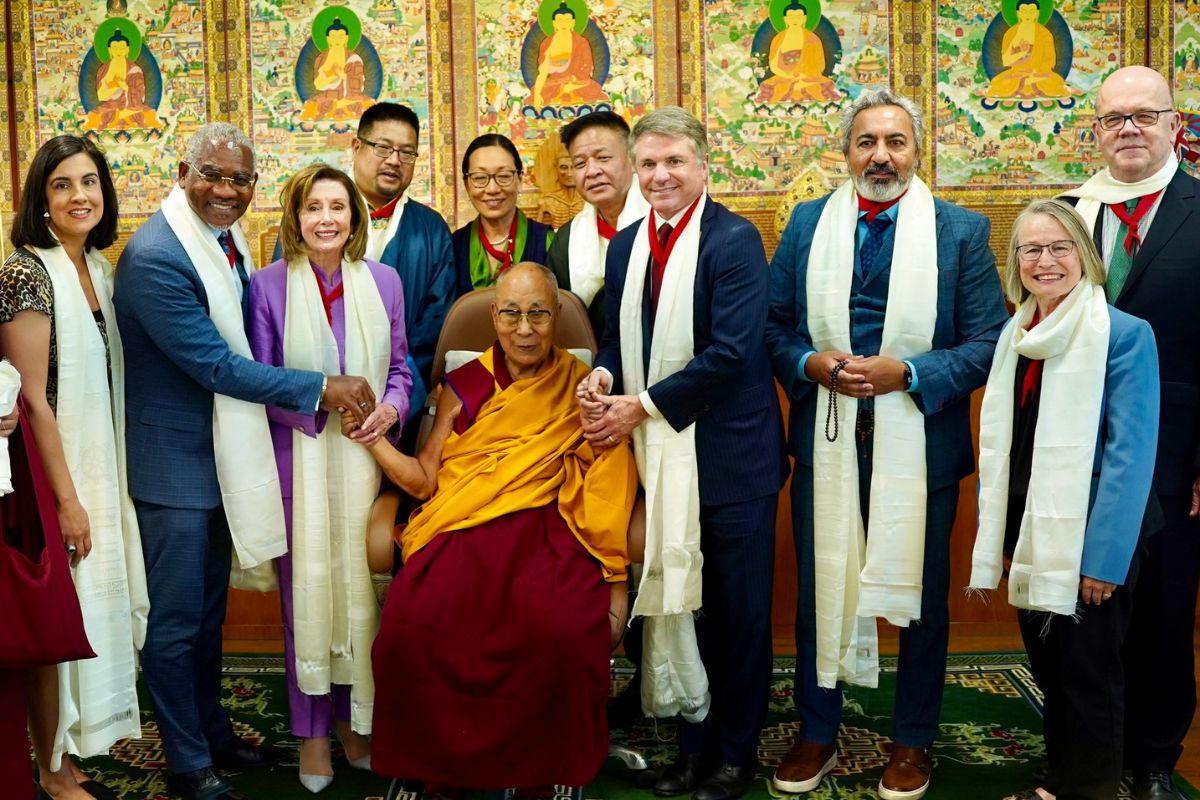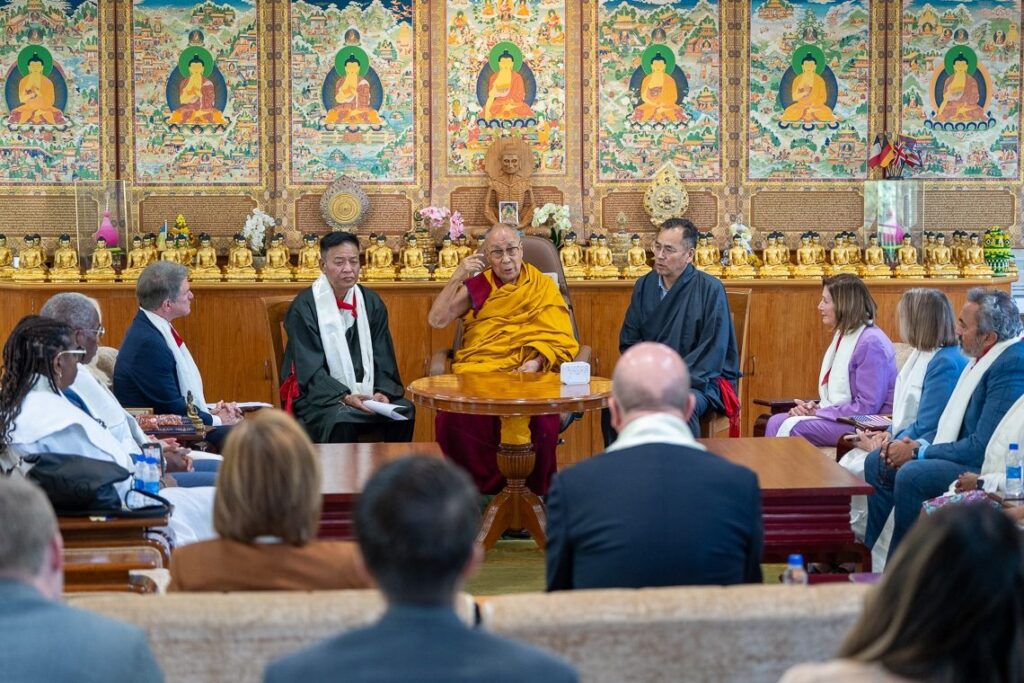Former Speaker Nancy Pelosi and other staunch proponents of China were invited in the seven-person group headed by Republican Michael McCaul. Pelosi’s 2022 visit to Taiwan had a major role in the sharp rise in US-China relations. A week had passed since the US Congress passed the Resolve Tibet Act before the visit to Dharamsala.
Now, the bill is awaiting ratification by the president. As expected, China fiercely objected to the visit, calling the Dalai Lama the leader of a “separatist” Tibetan group and requesting that the US stop adopting the legislation. Beijing’s claim that Tibet was a part of China since “ancient times” is described as “historically inaccurate” in the Bill, which has stronger language than the Tibet Policy Act of 2002 and the Tibet Policy and Support Act of 2020.
The US State Department will be able to “actively and directly” combat Chinese “disinformation” about Tibet because to it. Additionally, it requests that China strike a deal with the Dalai Lama or his delegates to satisfy Tibetan ambitions regarding their “unique language, religion, and culture”. During a speech in public held in Dharamsala, McCaul stated that the Bill explicitly states that Tibet is entitled to self-determination.
 Source: The Statesman
Source: The Statesman
Notably, when China opposed the US, it excluded New Delhi. The group was met by Prime Minister Narendra Modi and External Affairs Minister S Jaishankar, who focused their discussions on India-US relations. Supporters of the “One China Policy,” which refers to Beijing’s stance on Taiwan but also implicitly validates its control over Tibet, include the United States and India.
India’s treatment of both ‘Ts’ betrays its problems with China. In an effort to show Beijing that bilateral relations are a two-way street, New Delhi has refrained from mentioning the “One China Policy” in formal declarations since 2009. Following the Doklam incident, India made a noticeable effort to mend fences with Beijing as the Modi administration moved to normalise relations.
Source: NDTV
The government only decided to shift course in 2020 after China made an aggressive push into Ladakh. Unlike his predecessors, Modi has not met the Dalai Lama; nevertheless, since 2021, he has sent birthday greetings to the Tibetan leader on X.
The Dalai Lama and Taiwan President Lai Ching-Te both wished Modi well on his third term in office. Beijing also wished Modi well, stating that China was prepared to work with India “to look to the future and advance bilateral relations on a healthy and stable track,” following a stern reminder of the One China Policy to New Delhi for Modi’s acknowledgement of the felicitation from Taipei. China needs to first demonstrate that it is prepared to acknowledge and recommit to the long-standing border issues, including the recent one that it sparked in Ladakh four years ago.
What do you think about this? Comment below.

